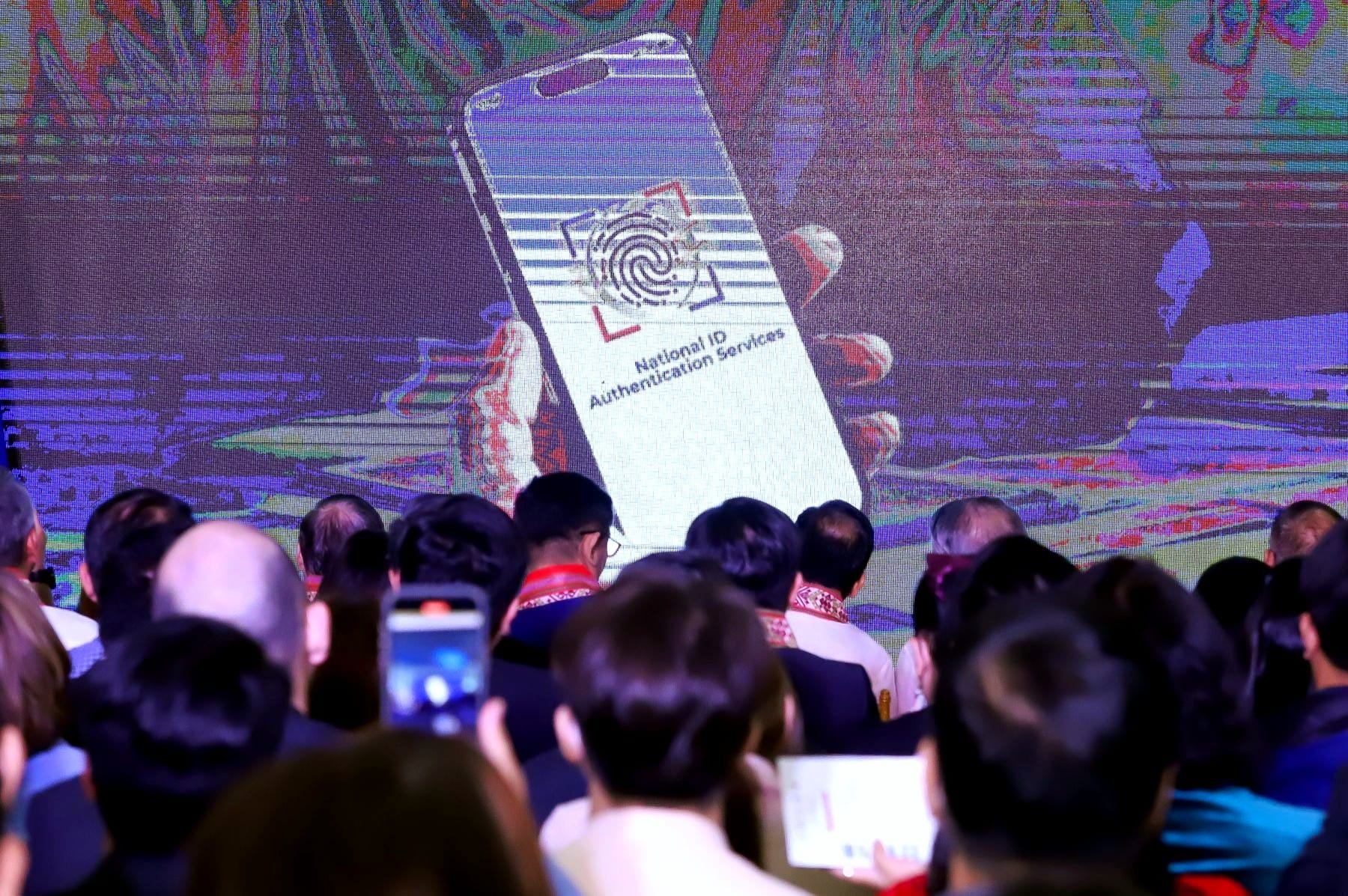Business and Economy
Gov’t launches digital national ID

DIGITAL NATIONAL ID. The Philippine Statistics Authority, in partnership with the Department of Information and Communications Technology, launch the digital national ID, along with authentication platforms, National ID eVerify and National ID Check at the PSA headquarters at East Avenue in Diliman, Quezon City on Monday (June 10, 2024). (PNA photo by Robert Oswald P. Alfiler)
MANILA – The Philippine Statistics Authority (PSA) and the Department of Information and Communication (DICT) on Monday launched the digital national ID which can be used as a valid proof of identification and age that can be presented in any government or private transactions.
Two authentication platforms which include the National ID eVerify and National ID Check were also launched at the PSA headquarters at East Avenue in Diliman, Quezon City.
The digital national ID is the official digital version of the national ID and can be easily accessible through computers or smartphones with an internet connection.
Anyone registered to the national ID system can access and view their digital national ID via https://national-id.gov.ph or download the eGovPH app, which requires input of demographic information and facial verification to confirm the individual’s identity.
National Economic and Development Authority (NEDA) Secretary and Philippine Identification System (PhilSys) Policy and Coordination Council Chairperson Arsenio Balisacan said the digital national ID help advance the government’s strategies contained in the Philippine Development Plan 2023-2028.
“It is difficult to overstate the potential impact of this project: it will enable efficient identity verification to significantly improve the overall efficiency and quality of government services, especially in the delivery of responsive and timely social welfare benefits. We hope to lessen leakages and ensure that public money is spent where it must be spent,” Balisacan said.
As of end-May this year, 87.6 million Filipinos already registered to the PhilSys.
National Statistician Dennis Mapa said of the total number of registrants, 83.6 million were already provided with the unique PhilSys number while 51.6 million were already issued with the physical ID cards.
“Admittedly, we have a backlog of 32 million but the printing of physical cards in the BSP (Bangko Sentral ng Pilipinas) printing facility is continuous, that’s why we have the digital national ID because the 32 million individuals and even those who already have a physical card can get their digital national ID,” Mapa said.
“This collaboration between the PSA and the DICT is a fulfillment of our shared goal towards Makabagong Pilipinas, where services are delivered efficiently and securely through digitalization,” he added.
Mapa said the digital national ID is part of the whole-of-government efforts spearheaded by the PSA and DICT towards digitalization.
“The President instructed us to accelerate digitalization process and for the PSA, we see the national ID system as a way of accelerating the digitalization process,” he said.
DICT Secretary Ivan Uy, for his part, said the digital national ID shall “revolutionize the way we do things in the government”.
“This modern identification system will streamline transactions, improve service delivery, and ultimately make doing business easier for everyone. I am excited to witness a positive change in how things are done with the digital national ID,” he said.
Streamlining authentication
For authentication of Filipinos registered to the national ID system, the PSA and DICT also developed the National ID eVerify (https://everify.gov.ph/) for government agencies and private establishments.
The National ID eVerify provides users with a suite of verification tools, including facial recognition and real-time data verification.
It also has a feature called the national ID check which can verify the authenticity of any format of the national ID, including the digital national ID by scanning the quick response (QR) code feature.
Government agencies can leverage the national ID eVerify system to expedite service delivery by swiftly confirming details. Likewise, companies can utilize the national ID eVerify system to confirm the identities of their employees.
The National ID Check, on the other hand, enables institutions to validate personal information through QR scanning.
It verifies information without accessing the national ID database, making it a valuable tool for organizations with limited technological resources.
“With these developments, every registered Filipino now has improved access to a reliable and secure proof of identity that can be easily authenticated on their devices. This will facilitate the faster distribution and wider utilization of the national ID, with relying parties finding it easier to onboard to the national ID system,” Mapa said.
Integration with online gov’t services
DICT Undersecretary David Almirol Jr. said the digital national ID goes beyond having access and copy of it on the phone. It is also ready for integration with the government’s digital and automated services.
“The main purpose here is to really streamline and also simplify the many government and private transactions moving forward,” Almirol said.
Even before its rollout, the government agencies are told to get ready for the full implementation and integration into government processes for seamless access to public services.
This means all information databases and systems to be developed by government entities must be synchronized to facilitate interoperability of government-initiated identification systems, ensure efficient and more reliable government transactions, and secure access to information and services.
Almirol said the platform used by the PSA is secure and well-encrypted to ensure that all data is safe from malicious actors.
“Ang maganda sa PSA, they have a so-called zero-trust policy. So, encrypted ‘yung kanilang data. Even us, nung ginawa natin ‘yung digital national ID as an integrator, wala kaming makitang data (What’s great about the PSA is they have a zero-trust policy. Their data is encrypted. Even us when we were helping them with the national ID as an integrator, we didn’t have access to their data),” he said.
The data provided by the platform, everify.gov.ph, is fully encrypted to both external and internal accessing entities.
“Through API (application programming interface) lang ang kanilang magagawa. Ibig sabihin, wala pong tinatawag na direct sharing of information. So, integration po ang mangyayari dito (They only have access to an API. What this means is there is no direct sharing of information. So, it’s only integration),” he said.
Since there is no direct access to data, Almirol said, data security remains in the hands of the originator of the data.
“Wala na pong kontrol ang DICT or PSA sa mga respective na gumagamit ng national ID moving forward. Kasi ang ibibigay lang ng system ay ‘yung verification lang (The DICT or PSA has no control over who uses the national ID moving forward. What our system provides is merely verification),” he added.

























